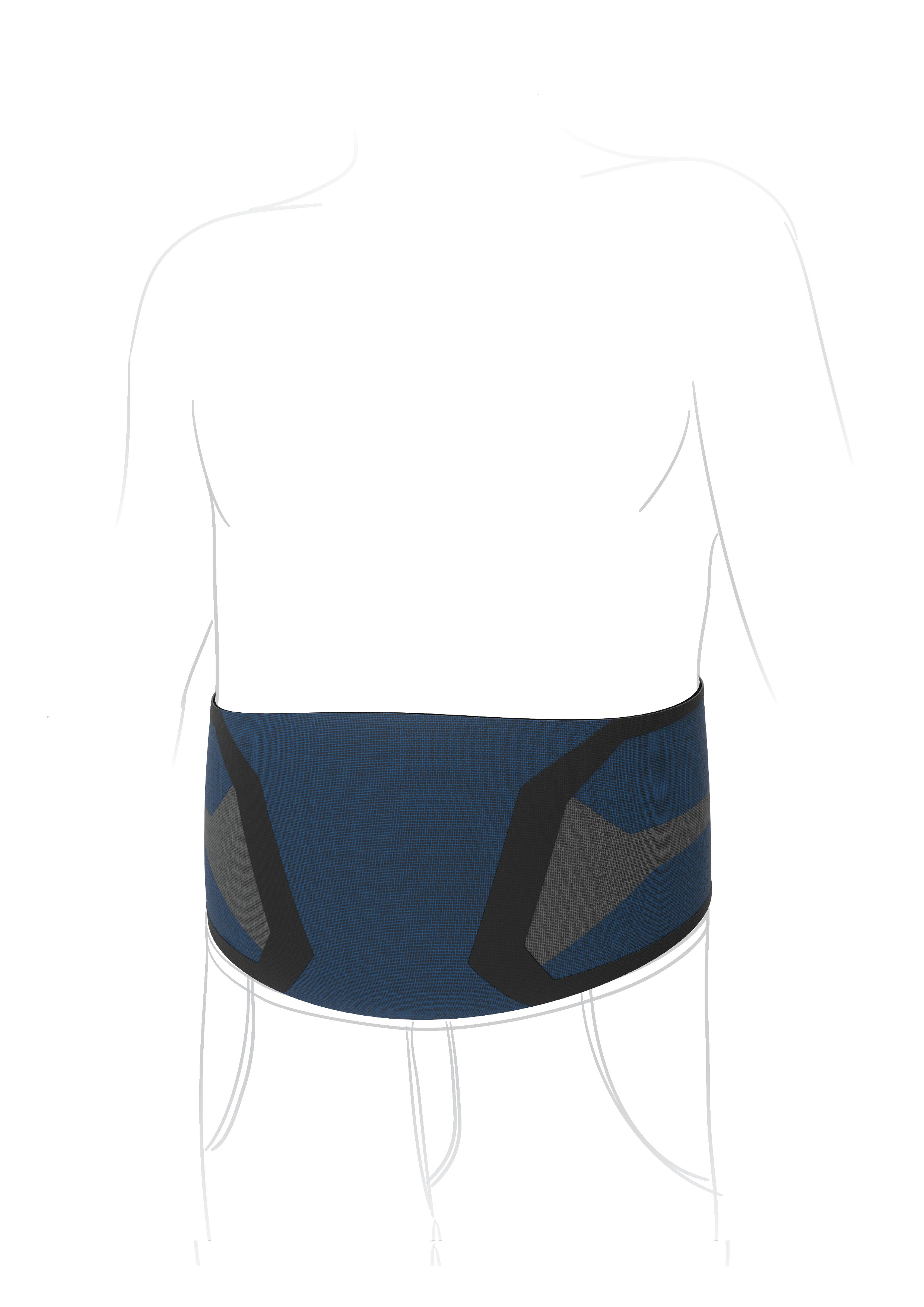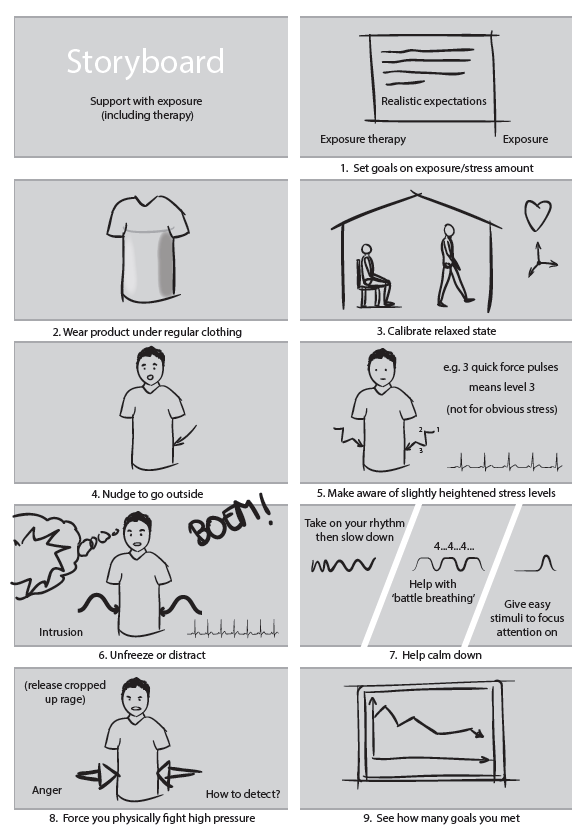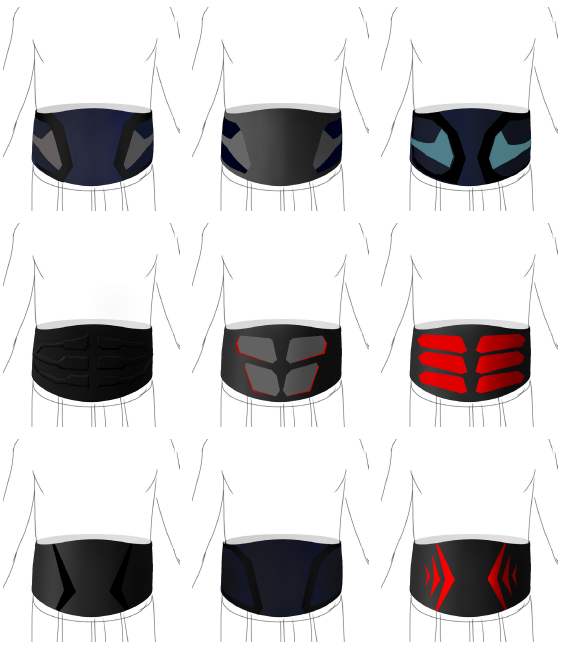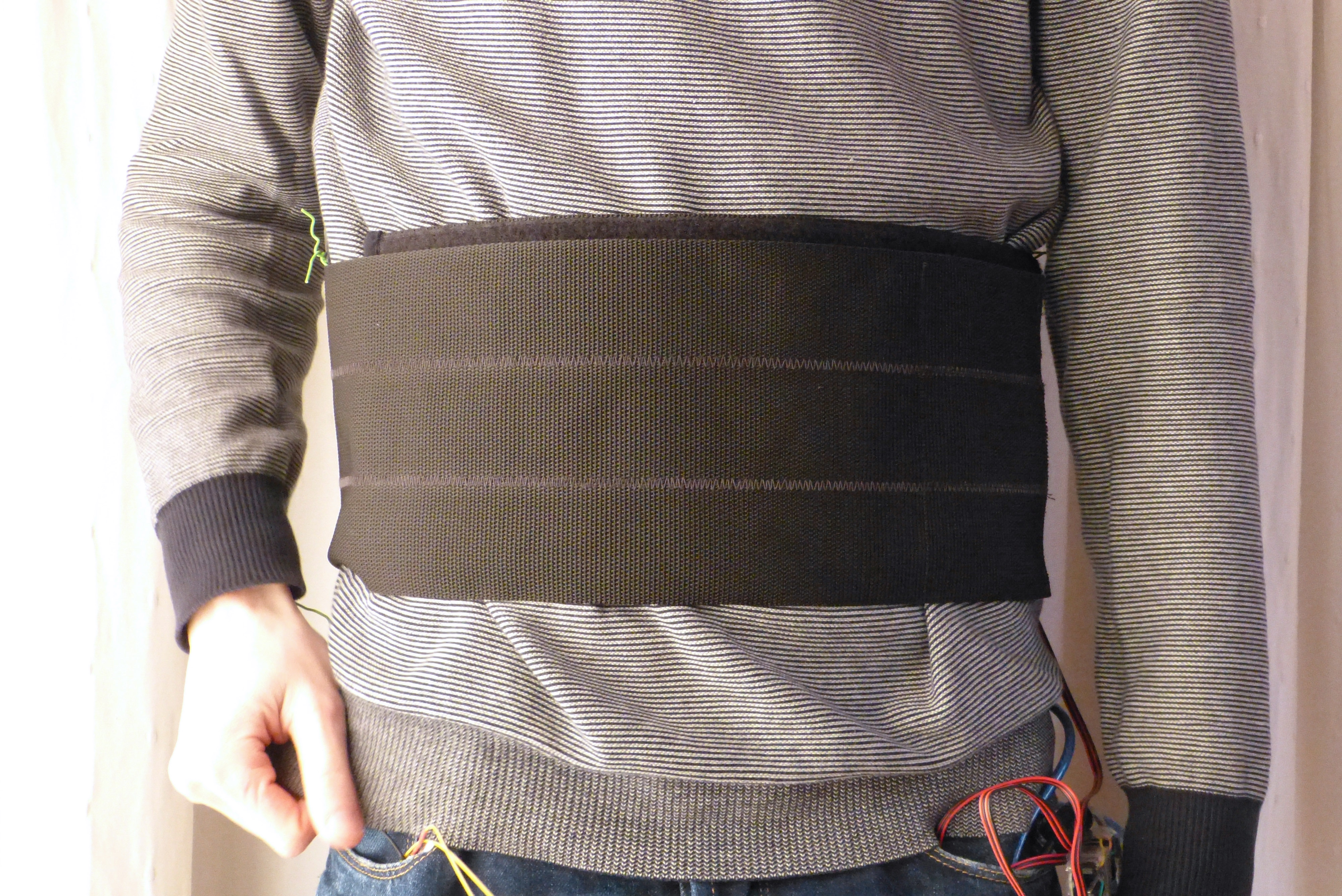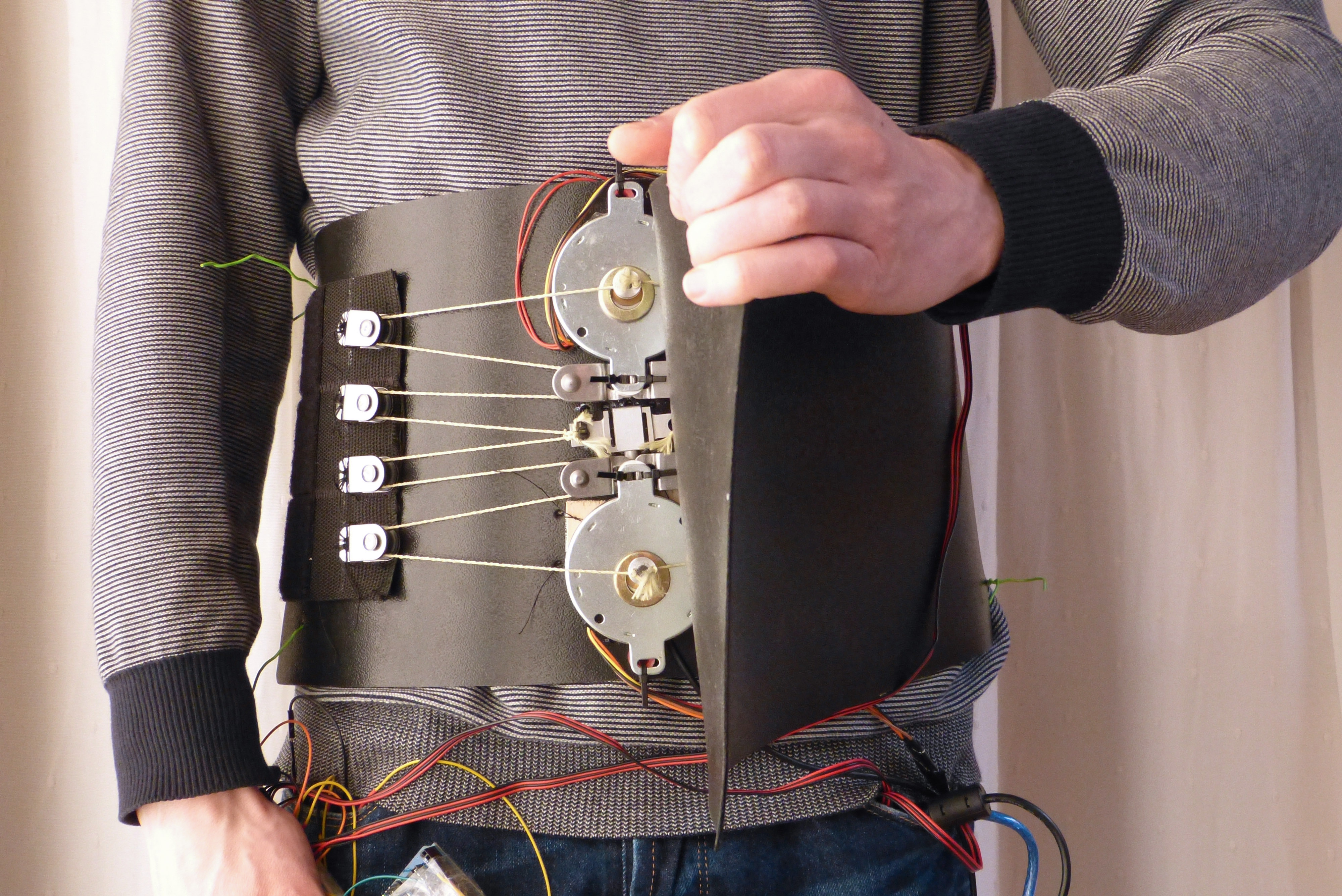Smart belt
A feedback device for veterans with PTSD
Settling back into regular life after returning from a mission is not possible for about 1 in 25 Dutch veterans. The events they have experienced have had such an impact that they suffer from Post Traumatic Stress Disorder (PTSD).
The problems they run into vary widely, but there are several prominent symptoms. Even though they are back in relative safety, a part of this group continues to behave like their environment is very dangerous. They are extremely alert and anything that is a reminder of the dangerous situations they have experienced generates a severe reaction, like they are in that extremely dangerous situation again. As this is terrifying, they will try to avoid reminders as much as possible, and this will often severely limit what they can do in their life.
The Smart Belt is designed to support these veterans in their daily life. It senses when the breathing rhythm starts to accelerate and then actively interacts by a firm squeezing in a rhythm which gradually slows down to enforce normal breathing and help the wearer to calm down.
Design and prototyping
The actuation is done with two small servo motors and a series of ropes and pullies which could generate a force which is strong enough to squeeze the abdomen markedly. A force sensor attached to the motor system measures the force changes in the unactuated state and thereby is able to monitor the breathing rate. In the actuated state the force sensors provide feedback to the control system.

Kaspar Jansen
- +31 (0) 152786905
- k.m.b.jansen@tudelft.nl
-
Room B-3-170
Graduate Student
- Matthijs Vollebregt
Researchers
- Prof. K.M.B. Jansen (chair)
- Dr. Marco Rozendaal (mentor)
